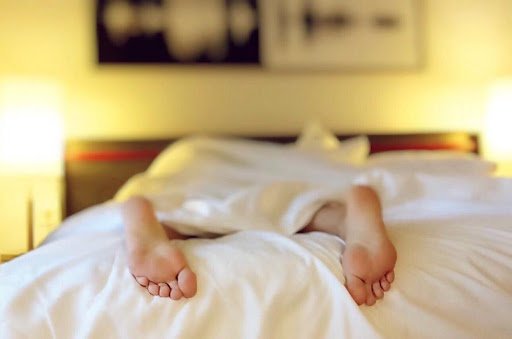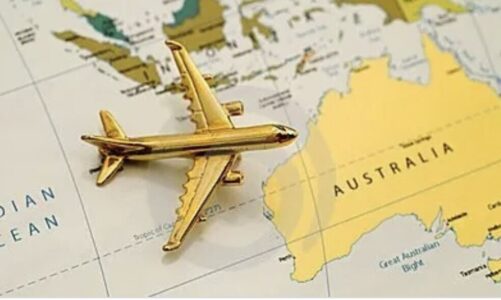Contents
For most people, traveling around the world and exploring new places on the regular represents the ideal lifestyle. But as exciting and enriching as traveling may be, it can also take a toll on your sleep schedule and mess up your daily routine. Crossing time zones, changing accommodations all the time, and the constant effort to adapt to new environments can easily disrupt your sleep and relaxation.
As you probably already know, getting proper sleep is essential for maintaining optimum mental and physical health, and keeping your energy levels high all day long. So, if you’re constantly sleep-deprived while traveling, it’s going to be quite difficult to make the most of your outings. What’s supposed to be a fun or productive trip can easily turn into an exhausting experience if you’re not able to get an adequate amount of rest.
Fortunately, there are certain tricks and strategies you can use to manage jet lag and reduce travel fatigue, so you can enjoy your travels to the fullest.
Help your body adjust to the time difference
Unless it’s a short-notice trip where you simply have to pack your things and go, you’ll likely have enough time to prepare for the travel difference. The preparation should start a few days prior to your departure, and it involves moving your bedtime an hour earlier or later every day, depending on your destination’s time zone. This should help your body’s circadian rhythm adjust to the time difference faster. As a result, you’ll be able to reduce the feeling of jet lag and make the transition to the new time zone a lot smoother.
Also, if you’re planning to catch some sleep on the place, keep in mind that plane seats are not exactly comfortable, and if you also happen to have a screaming baby on board, there are zero chances of getting a shut-eye. You should play it safe and get adequate rest before the flight.
Learn about the two-day rule
Adjusting your sleep schedule to match the destination’s time zone only makes sense if you’re going to spend more than two days in the same location. If you plan on returning home after less than two days or traveling to another place, there’s no point in forcing your body to adapt to the new time zone only to go back to your normal schedule or go through another shift shortly after.
In these situations, it’s best to stick to your existing routine and try to work around it. If you have to work or if you want to explore your destination, you should try to plan your activities in a way that doesn’t interfere with your normal sleep schedule, if possible.
Make yourself comfortable
You may not be able to feel right at home wherever you go or control all aspects related to accommodation, but you can bring a bit of home comfort wherever you go. If there’s anything that helps you sleep better, whether it’s a pillow, a blanket, sleep masks, ear plugs, or comfortable bamboo pajamas for women, take these items along when you travel. Having familiar objects with you can ease the anxiety of traveling to a foreign place and help you relax.
Also, booking the right accommodation can make a world of a difference. Even if you can’t afford to stay in the premium suite at the hotel and enjoy complete tranquility, at least you can increase the odds of having a quiet and comfortable room by booking smartly. Choosing rooms on superior floors, located as far as possible from the elevator or vending machines is always a clever move.
Stay hydrated
Drinking enough water is a must, whether you travel or not. But it’s even more important while traveling – especially if you’re flying – because that’s when your body tends to get dehydrated faster. Airplane conditions, the extra effort and activities that trips usually imply, and the changes in climate and diet are all factors that contribute to dehydration, which can impact your energy levels, cause fatigue and ultimately lead to sleep disruptions.
Fortunately, the solution is as obvious as it is simple: you have to keep a water bottle nearby at all times and remind yourself to take a sip every now and then. It will help you stay hydrated and sleep better at night.
Exercise
You might think that traveling is exhausting enough as it is, so why should one push for physical activity when they’re out on the road? The explanation is simple: traveling also involves long periods of inactivity when your body does nothing but sit in the same position for hours. So, you have to get up and move, stretch and exercise to get those muscles working again.
Exercising in the morning is also a way to signal your body that it’s time to wake up. That will trigger your circadian rhythm and help you adapt your schedule to the new conditions. Avoid working out in the evening, as it will have the opposite effect.
Reduce alcohol and caffeine intake
You might not want to hear this, but even if you’re on holiday and you want to spoil yourself a bit, or if you’re on a business trip and you need your daily dose of caffeine to function, consuming alcohol or coffee while traveling is not the best idea, at least not if you want to get a good night’s sleep.
Coffee is a stimulant, keeping you awake when you need an extra boost of energy, while alcohol is a depressant, making you feel sleepy and less alert. Both of them can mess up your sleep schedule, so you might want to keep an eye on your alcohol and caffeine intake during your trip.
Your traveling experience can be a lot more enjoyable and productive if you’re able to get adequate rest instead of fighting jet lag and feeling constantly exhausted. If you’re going on vacation, or if you’re getting ready for a work trip, give these tips a try and test their efficiency.




